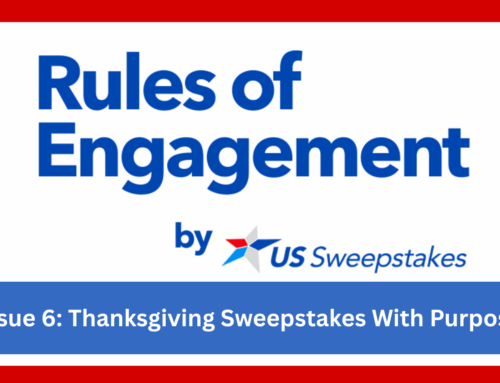
Image by Freepik
In the ever-evolving landscape of social media, businesses and influencers frequently turn to sweepstakes and giveaways to boost engagement, reach new audiences, and build brand loyalty. While these promotions can be highly effective, it’s crucial to understand and adhere to the Federal Trade Commission’s (FTC) endorsement guidelines to ensure transparency and fairness.
In this blog post, we’ll delve into the key aspects of the FTC’s endorsement guidelines for social media sweepstakes, focusing on the new updates made in June 2023.
Understanding the Basics
The FTC’s endorsement guidelines are designed to protect consumers from deceptive advertising practices. When it comes to social media sweepstakes, the FTC wants any material connection between a business and an endorser disclosed to audiences.
Example: JKL Cola asks consumers to send a tweet about JKL Cola in exchange for an entry into a sweepstakes.
The FTC would consider the consumer’s tweet an endorsement and therefore any material connection (e.g. the sweepstakes entry) would need to be disclosed. The primary requirement outlined by the FTC is that the disclosure must be clear, conspicuous and easily understandable by the average consumer.
Requiring the consumer to include #sweepstakes in their tweet would not be enough. The newly updated FTC’s Endorsement Guides: What people are asking states: “If a consumer posts, “My happiest place to drink JKL-Cola is in my jacuzzi. #sweepstakes” their social media friends or followers might not understand that the post was incentivized by a sweepstakes. It would be clearer if the consumer said, “My happiest place to drink JKL-Cola is in my jacuzzi. #JKLCola_Sweepstakes.”
Furthermore, using the full word “sweepstakes” in the hashtag is required, rather than using an abbreviation (i.e. “sweeps”) because it’s likely that many people wouldn’t understand what the abbreviation means.
Penalties for Non-Compliance
Non-compliance with the FTC’s endorsement guidelines can lead to serious consequences, including legal action and financial penalties. It’s in the best interest of businesses to prioritize transparency and adhere to the guidelines to maintain trust with their audiences.
Conclusion
As social media sweepstakes continue to be a popular marketing strategy, it’s crucial for businesses to prioritize transparency and compliance with the FTC’s endorsement guidelines. US Sweepstakes can help you navigate sweepstakes legal compliance requirements. Contact us today to get started.



